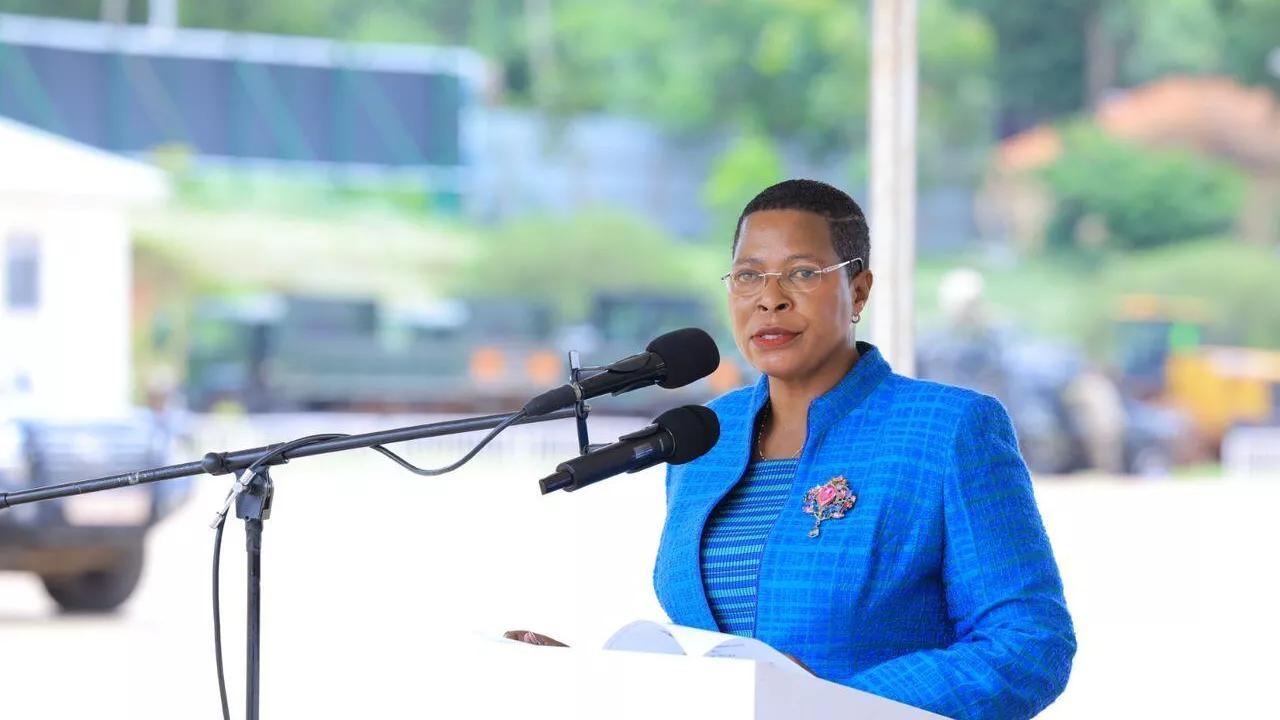Africa-Press – Uganda. Parliament has advanced the contentious UPDF Amendment Bill at a speed that has alarmed legal experts and civil society observers alike.
In just four days, and despite widespread concerns over due process and constitutional implications, lawmakers have fast-tracked a bill that seeks to return civilians to the jurisdiction of the General Court Martial.
This is how it unfolded — a timeline that exposes a process marked by haste, limited consultation, and a worrying disregard for judicial precedent.
DAY 1: TUESDAY, MAY 13
The Bill is Tabled
Defence Minister Oboth Oboth introduces the UPDF Amendment Bill to Parliament. Without delay, it is referred to the Joint Committee on Legal and Defence Affairs for consideration.
DAY 2: WEDNESDAY, MAY 14
Chaos in Committee Begins
The committee convenes under pressure — and protest. Several MPs express outrage, saying they “had not sat to study the bill” after it was introduced the previous evening.
Many admit they “had not yet read the Bill or addressed themselves to the Supreme Court ruling” — a ruling that struck down provisions allowing civilians to be tried in military courts.
The committee summons officials from the Ministry of Defence, the Attorney General, and the Director of Public Prosecutions (DPP).
But the DPP’s representatives, having received the summons at 10 a.m., decline to make a submission, stating, “It would be unfair for us to present without studying the bill and the Supreme Court decision.”
They request to appear on Friday instead.
Political parties, also summoned on short notice, are effectively sidelined — denied a meaningful opportunity to provide input.
DAY 3: THURSDAY, MAY 15
Limited Voices Heard
The committee hears from veterans, whose submissions largely focus on pension reforms and administrative concerns.
On the central issue — civilian jurisdiction in military courts — only one expert appears: advocate Jude Byamukama. His testimony is a scathing indictment of the process:
“It is truly unconscionable for Parliament to afford the public no time to make input in such a critical bill.”
DAY 4: FRIDAY, MAY 16
Final Submissions — But Still Rushed
The Attorney General and the DPP appear before the committee. These are the final substantive engagements on a bill many have described as “justice-threatening.”
DAY 5: SATURDAY, MAY 17
Retreat and Report Writing
The committee retreats to draft its report and finalize the bill. But as they begin deliberations, critics raise a pointed question:
“Have MPs truly studied and understood this bill clause by clause?”
The bill — reviewed in just four days, compared to the standard 45-day period allocated for such work — is now scheduled as item number 5 on the Tuesday, May 20, order paper for its second and third readings.
Before that, President Museveni will meet NRM MPs on Monday, May 19th in a closed caucus session. The public is left to wonder: will this meeting shape the bill in the public interest — or serve a political agenda?
STAKEHOLDER CONCERNS: WHO WAS HEARD?
John Baptist Asiimwe – Deputy DPP
Warned that allowing serving military officers to preside over courts undermines independence.
Recommended judicial vetting of appointments.
Criticized the GCM’s “unlimited jurisdiction,” calling it confusing and unconstitutional.
Called for a transitional provision to protect cases affected by the Kabaziguruka Supreme Court ruling.
Asserted that serious offenses are already competently handled by civilian courts.
Jude Byamukama – Advocate
Called the bill a direct “contempt of the Supreme Court ruling and international standards.”
Flagged conflicting clauses on arms and classified materials as overreach.
Said Clause 117A on who is subject to military law “disregards the reasoning and directives of the Supreme Court.”
Urged that the General Court Martial’s jurisdiction be limited strictly to UPDF matters.
Prof. Ronald Naluwairo – Dean, Makerere School of Law
Invited on May 14th at 5 p.m. to submit written comments by the next morning — highlighting the rushed nature of the process.
Stressed that international human rights standards allow for civilian trials in military courts only under “exceptional circumstances” — which the bill fails to meet.
A FINAL WORD
The UPDF Amendment Bill may soon become law — but the process by which it was crafted raises more questions than it answers.
The bill was handled with speed that undermines public trust and leaves little room for democratic deliberation.
As Parliament prepares to consider it on Tuesday, May 20, all eyes will be on whether lawmakers will protect constitutional safeguards or rubber-stamp a bill that threatens civil liberties.
For More News And Analysis About Uganda Follow Africa-Press






